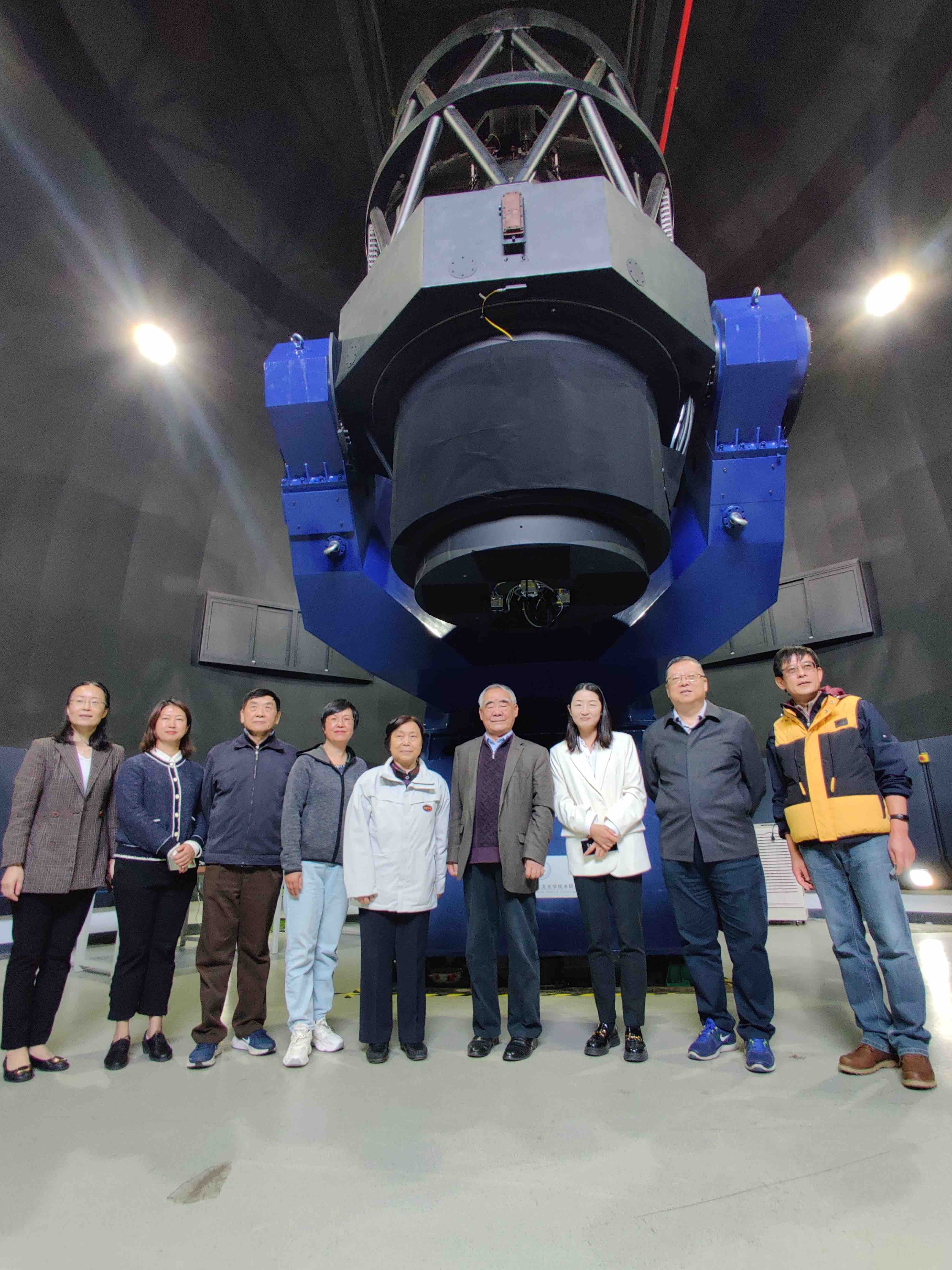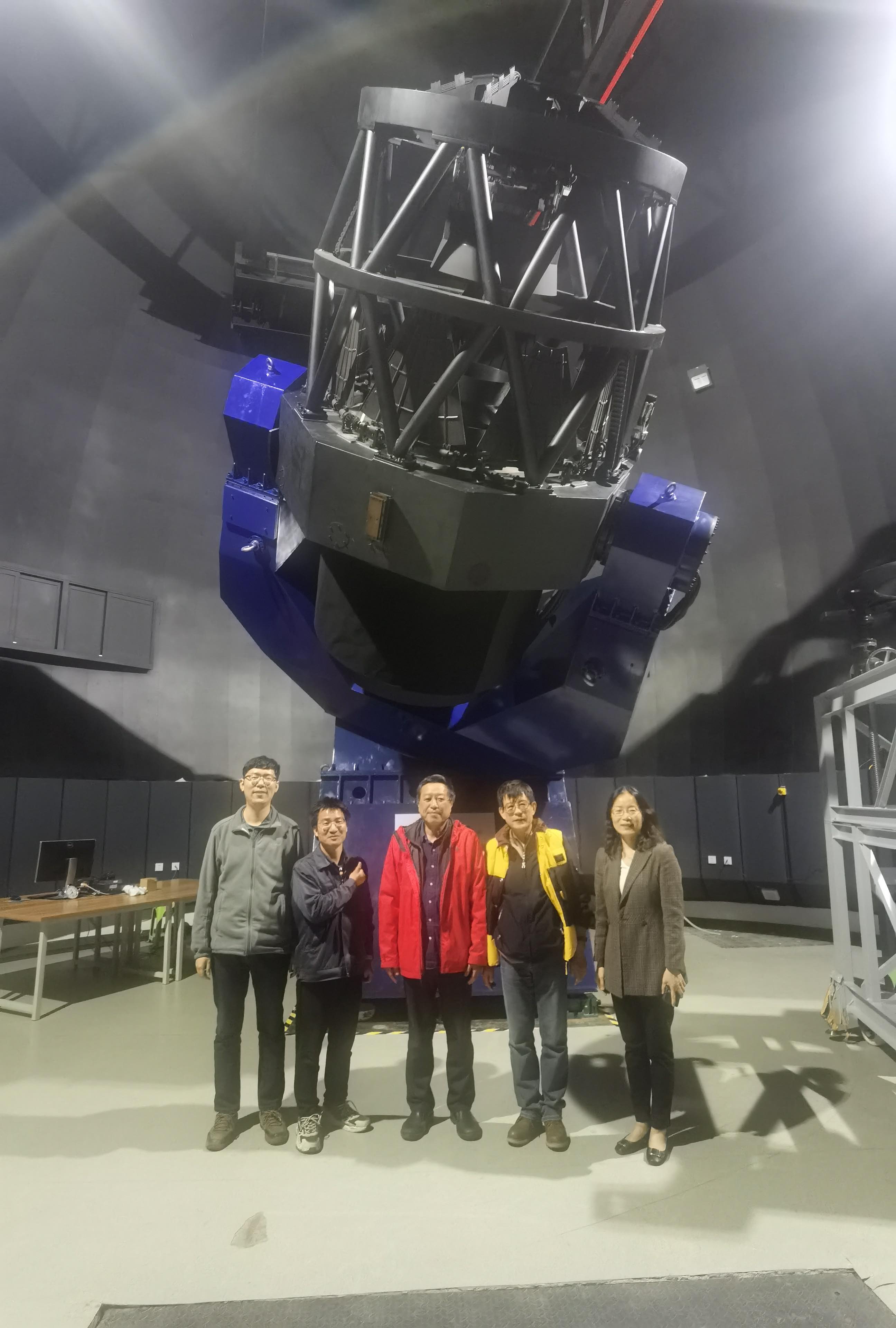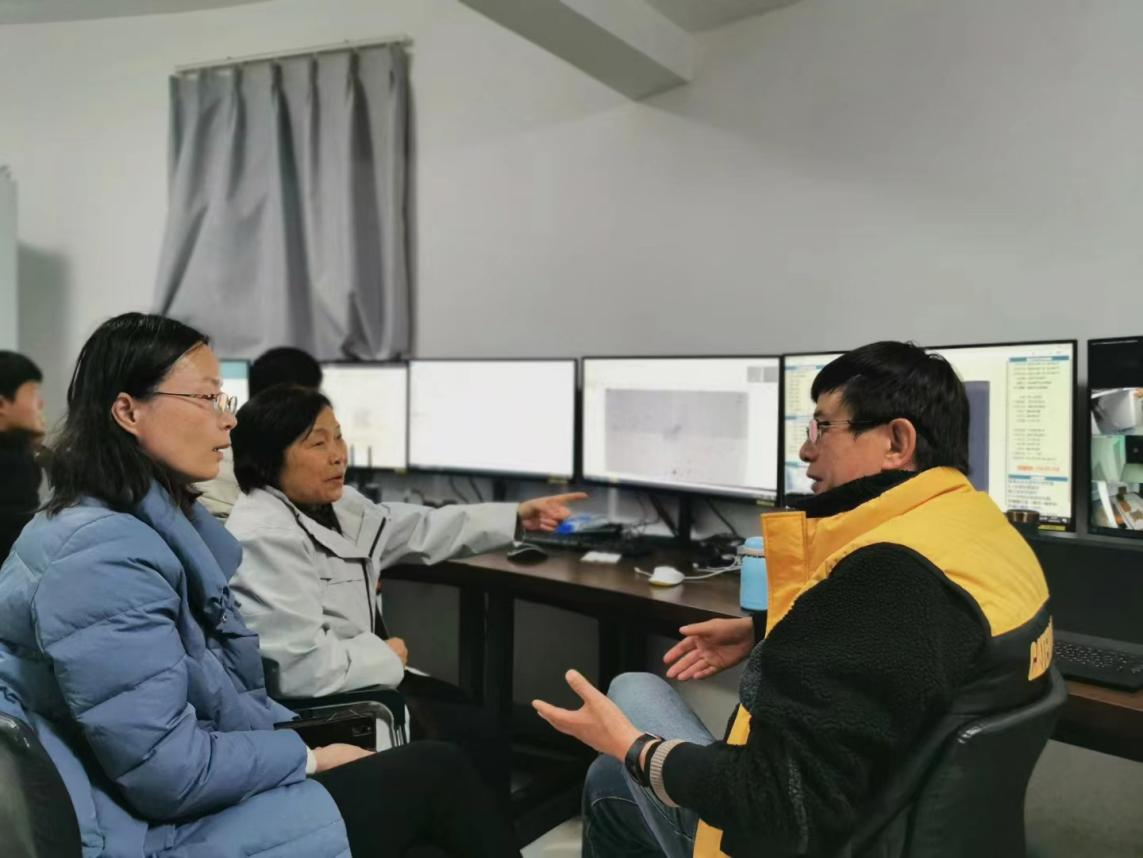中国科学院院士崔向群、汪璟琇及丽江市领导一行考察1.6米多通道测光巡天望远镜
A Delegation Led by Academician Xiangqun Cui, Jingxiu Wang, and Leaders of Lijiang City Visited Mephisto
2023年5月10日,中国科学院院士崔向群、汪璟琇及丽江市领导一行莅临云南天文台丽江高美古观测基地参观考察云南大学1.6米多通道测光巡天望远镜。
新利18体育新所长刘晓为教授、望远镜设计建设单位中国科学院南京天文光学技术研究所党委书记、副所长袁祥岩研究员向来访专家和领导详细介绍了望远镜设计、结构,整个项目的特色及建设进展情况。崔向群、汪璟琇院士及其他来访专家高度评价了1.6米多通道测光巡天望远镜项目的科学特色以及建设成效,对未来巡天及科学研究提出了宝贵意见。丽江市领导对在丽江发展天文研究和教育的重要性给予了高度肯定,表示将继续为1.6米多通道测光巡天望远镜项目提供支持和便利,加大在天文教育、科普等方面的投入。
5月10日和11日晚,崔向群院士和原中国科学院南京天文光学技术研究所党委书记、副所长李国平研究员分别亲临现场,详细了解整个自动化观测过程,查看观测图像质量,并就如何做好观测和设备运维、实现观测智能化等提供专业指导和建议。




On May 10, 2023, a delegation led by Academician Xiangqun Cui, Jingxiu Wang and leaders of Lijiang City visited the Multi-channel Photometric Survey Telescope (Mephisto) of Yunnan University at Gaomeigu Station of Yunnan Obervatories, CAS.
Prof. Xiaowei Liu, Director of the South-Western Institute for Astronomy Research of Yunnan University, and Prof. Xiangyan Yuan, Secretary of the Party Committee and Deputy Director of the Nanjing Institute of Astronomical Optics & Technology (NIAOT), CAS, introduced the architecture and the current status of Mephisto, explained its uniqueness in time-domain astronomy. Profs. Cui and Wang and other visiting experts highly praised the Mephisto project and impressed by its progress. Seeing the great scientific potential of Mephisto, they provided valuable suggestions for future surveys and scientific studies. The leaders of Lijiang City affirmed the importance of developing astronomical researches and education in Lijiang. The city government will continue to provide support for the Mephisto project, and invest more in astronomical education and science popularization.
In the evening of May 10 and 11, Academician Xiangqun Cui and Prof. Guoping Li, former Secretary of the Party Committee and Deputy Director of NIAOT, respectively, visited the site and inspected the procedure and image quality of the automated observations. They provided important guidance and suggestions for the Mephisto project, including observational quality improvement, telescope operation and maintenance, and the intelligentization of the Observation Control System.
